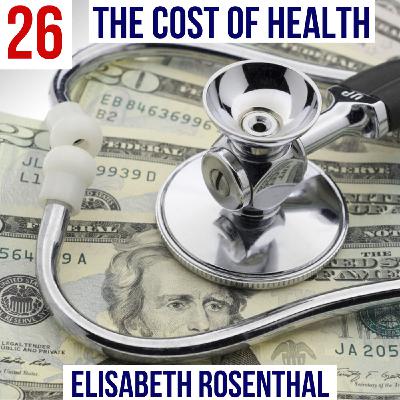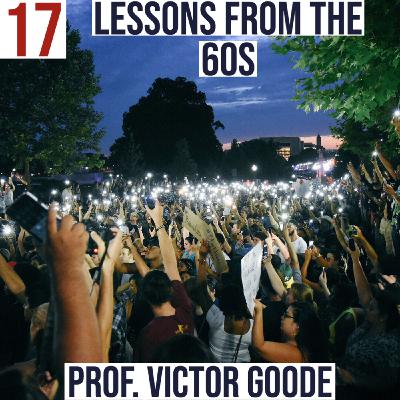#16 - Journalism in the 21st Century with Susan Modaress Tehrani
Description
Our First Amendment guarantees the right to a free press. In order for us to have a healthy democracy, the citizens –– people like you and I –– have to know what's happening in the world and, especially, what’s happening in our government.
As the French writer Albert Camus once said:
“A free press can, of course, be good or bad, but most certainly without freedom, the press will never be anything but bad.”
Our freedom, it appears, requires a certain degree of knowledge about society’s everyday affairs so that we understand how things should work in order to diminish corruption and impropriety when institutions, including government, are left unexamined. But in our world of pressing deadlines, financial obligations, and distractions, acquiring this critical knowledge has become increasingly difficult.
How practical, for example, is it for the common person to know about the Dakota Access Pipeline issue or the increasing tension between the United States and Iran, while balancing the responsibilities of life and work? Rare, I would say.
For these reasons, we depend on professionals, such as journalists, to gather this information for us. Considering the inherently oppositional nature of journalists to the government, danger is a consistent feature to those who exercise our critical freedom of the press. History is replete with stories of journalists being jailed or even killed for reporting on government impropriety.
And history will continue to collect even more stories. In June 2020, CNN reporter Oscar Jimenez and his crew were arrested on camera in Minneapolis while they were reporting on the demonstrations following the police murder of George Floyd.
In light of such an egregious violation of the First Amendment, how should journalists handle these times?
Violations of this nature are not the only things that journalists should consider. Thanks to the rise of social media and the fact that anyone can report a story with a tweet, how should journalists preserve the craft of researching and capturing important stories?
Certainly, social media has increased the amount of disinformation. But, on the other, more positive end, it’s also allowed access for organizing against ruthless authoritarian leaders --most recently in Hong Kong, Egypt, and even Moscow.
Journalism is not only a profession but a craft –– a craft that should be exercised with care.
In this upcoming interview, I've discovered that those who become journalists have the added responsibility of paying special attention to respecting their craft and developing sound techniques to produce quality news.
Especially in the time, we find ourselves living, our democracy depends on it.
How do you remain objective? How do you deal with combative or evasive interviewees? How do you remain safe?
Considering that I’m not a journalist, these are some of the questions that cross my mind when I think about journalism. And in this episode, I get the pleasure of bringing you those answers from a journalist who started her career before the internet and who continues in a different news environment. She’ll be sharing her professional experience and techniques with us.
In today’s episode, I’ll be sitting down with New York-based broadcast and print journalist Susan Modaress Tehrani. She’s currently a Diplomatic Correspondent at the United Nations. Susan is also the Vice President of the association of foreign correspondents in the United States. She has reported from some of the worlds’ contemporary hotspots, including Egypt, Lebanon, Haiti, Iran, and Iraq. She’s also covered stories across the US from Detroit to Louisiana, California, and Wisconsin. Her work is featured in Newsweek, Newsweek Middle East, AL-Monitor, The Daily Journalist, Aljazeera, PressTV, and Euronews, among others.






















